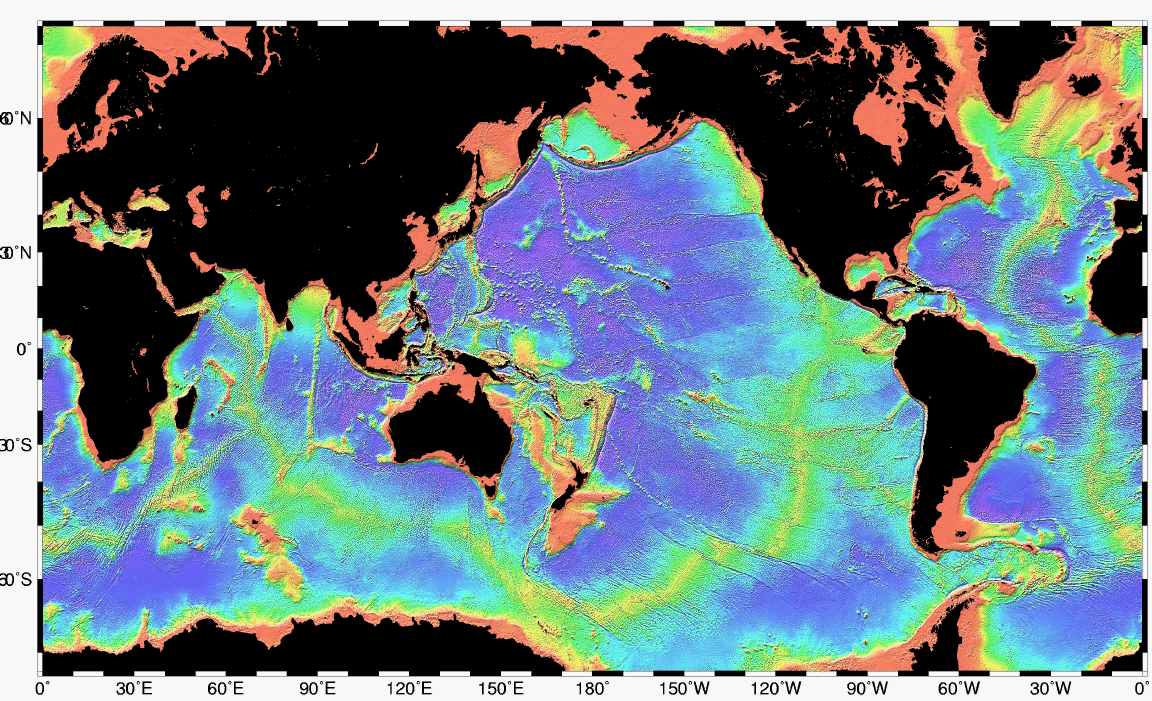Approximately three-fifths of the planet’s surface lies beneath our vast oceans, including Earth’s longest mountain range and the land bridges early humans used to travel from one continent to another.
Recently, planetary scientist James O’Donoghue remade a 2008 NASA video to show what could be revealed if all ocean water drained.
From the Japanese space agency, JAXA, where he works, O’Donoghue, a former NASA scientist, took the video created by NASA physicist and animator Horace Mitchell and tweaked the timing. He also added a tracker to show the amount of water draining in animation.
As the water drains, you can see the underwater edges of the continents first. These are known as the continental shelves.
O’Donoghue told Business Insider,
“I slowed down the start since, rather surprisingly, there’s a lot of undersea landscape instantly revealed in the first tens of meters.”
The continental shelves also make up some of the land bridges humans used to cross to other continents. Our ancestors, from tens of thousands of years ago, were able to traverse from Europe to the U.K., and Siberia to Alaska, by land.
Early inhabitants of Australia could even walk to what are now islands surrounding the Australian continent.

Photo Credit: Maximilian Dörrbecker (Chumwa) CC BY-SA 3.0
O’Donoghue explained that water frozen at the poles during the last ice age melted and created the continents we know today while enclosing the humans where they were.
Earth’s longest chain of mountains, called the mid-ocean ridge, appears once the sea levels drop 2,000 to 3,000 meters, revealing its 37,000 global stretch. More than 90 percent of the range is underwater.

Photo Credit: National Oceanic and Atmospheric Administration
Volcanic mountains can be seen between the Earth’s tectonic plates. Most of the planet is revealed at 6,000 meters, with the Marianas Trench needing another 5,000 meters before totally emptying.
The video really does showcase how interesting the topography of the Earth is underneath the oceans and the chapters of our earliest existence.
What do you think about this revealing video? Let us know in the comments!
The post NASA Animation Shows Oceans Draining and What’s Beneath the Sea appeared first on UberFacts.